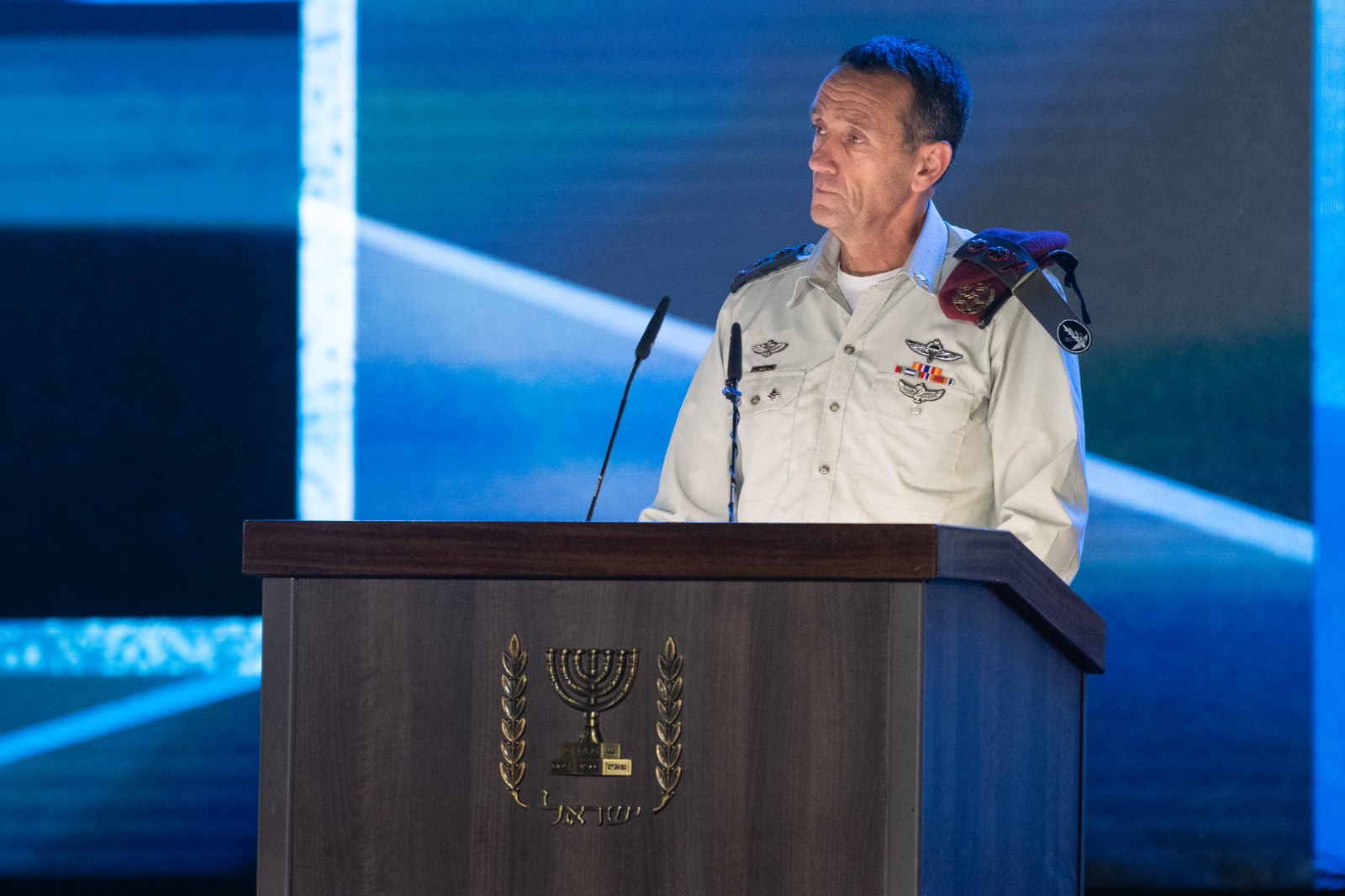Chief of the General Staff's Speech in Mark of 50 Years to the Yom Kippur War
The Chief of the General Staff, LTG Herzi Halevi, at the main assembly commemorating the 50th anniversary of the Yom Kippur War:
Honored guests,"
In the early 1970s, seeds of dispute appeared regarding issues of security and society in Israel. The moment the thunder of war sounded, the dispute was silenced in the face of the greater mission.
In recent months, the threat of internal disputes has been looming over us. The debate regarding what is moral has been present in Israeli society since Israel’s establishment. Even in times of crisis, we knew how to extract what we have in common from the debate and use that common ground as shelter. The ability to manage a dispute is one of the characteristics of a healthy society. However, a dispute that is followed by deepening polarization and division in Israeli society is dangerous. In the face of the current security challenges, such a dispute shows arrogance and the assumption that the IDF is immune to the devastating consequences of polarization is hazardous.
When our enemies make the mistake of considering a multi-arena threat to Israel, the responsibility to keep the IDF strong and united falls on us and on everyone who is committed to the Israeli alliance.
Criticizing the IDF is allowed; we are responsible for our mistakes, but lashing out at our soldiers is unacceptable. Lashing out at those who put on a uniform and serve Israel for years in order to maintain its security is irresponsible.
Calling on the younger generation not to enlist in meaningful combat service is dangerous. Calls to not report for reserve duty harm Israel’s security and the IDF.
The soldiers of the ‘people's army’ come from different homes, in each of which there is a lively discussion regarding Israel’s identity and values. The IDF is home to its soldiers, who are united in their mission.
With faith in their work, IDF commanders forge their units and soldiers to ensure they will support one another in difficult times, out of comradeship and relatability with the mission of defending our home.
As the Yom Kippur War taught us, we cannot safely exist here without this common mission.
The order of the hour requires backing up the IDF’s commanders and its soldiers, as Prime Minister Golda Meir told the nation at the end of Yom Kippur: "We will behave appropriately to our sons, the soldiers of Israel, who bravely do their duty."
Dear families, "restoring the situation to what it was before" is a common military phrase. The invasion of the Egyptian and Syrian Armed Forces into Israeli territory led to change in our region, but it was restored to its original state, even more so when the IDF moved to strike back and advance deep into the enemy territory. There are things that will never return to their original state: the lives of the fallen, the health of those wounded both physically and mentally and the lives of their families, which have changed beyond recognition. 2,689 soldiers fell in the Yom Kippur War, including sixteen whose burial place is unknown.
They were willing to sacrifice their lives for one thing, noble and sublime: the defense of the only home of the Jewish nation, who returned to their country after two thousand years of exile.
They gave up their lives so that we can live here safely and have healthy disputes about the identity of the individual without harming the identity of the "united".
50 years have passed. Sons and daughters of the second and third generations of Yom Kippur soldiers are serving in the IDF today.
The blood of the fallen, the cries of the wounded and the calls of the cities at night are a commandment for us, the commanders of the IDF and its soldiers, to observe the Commandments "in every generation"—to see ourselves as if we fought in the Yom Kippur War, to carry the memory of the war through the generations, and to deepen the lessons taken from it.
Fifty years ago, the nation enlisted in a time of need, recognizing the scope of the threat and the magnitude of the hour. Our mission today is to do this before tribulation, out of strength and foresight.
The words of the Chief of the General Staff during the Yom Kippur War, the late LTG David Elazar, are still echoing in our ears, ending with the following: "Regarding past experience, we will remain alert, ready for the continuation of the battle." The IDF is alert and ready to be on its guard, ready to face any threat, near or far."


